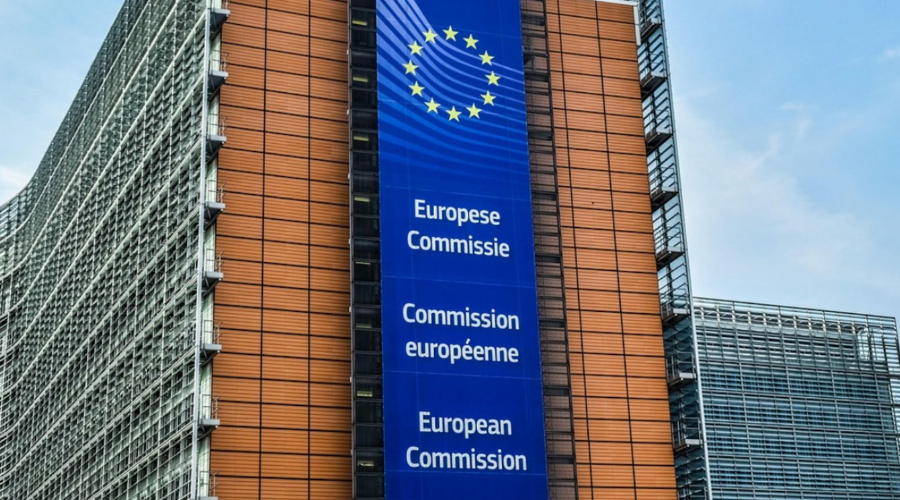
Pond ecosystems for a resilient future: working toward global recognition
4 August 2025
The ICJ’s Historic Advisory Opinion: A New Era for Climate Justice?
25 August 2025By Max DOUGHTY
President von der Leyen,
It is undeniable that climate change is an existential crisis demanding ambitious action. You have acknowledged the ‘necessity to protect our planet’ (von der Leyen, 2023), yet current EU policy is not aligned with the Paris agreement and is rated as ‘insufficient’ (CAT, 2024). We cannot negotiate with science. The evidence presented by the IPCC is clear – ‘Climate change is a threat to human well-being and planetary health. There is a rapidly closing window of opportunity to secure a liveable and sustainable future for all.’ (IPCC, 2023, p. 24).
The impacts are here and now. Climate change is fuelling wildfires in Greece and Portugal (Joint Research Centre, 2024), while 2024 was the Europe’s warmest year on record (World Meteorological Organization, 2025). You once described the European Green Deal (EGD) as Europe’s ‘man on the moon moment’ (von der Leyen, 2019), but if we aim for the moon with the same engines that caused the climate crisis, we are bound to miss.
We cannot continue on the dangerous unjust path of ‘green growth’. Scholars have highlighted the reality that continued GDP growth cannot be reconciled with respecting planetary boundaries (Hickel, 2020; Kallis et al., 2020; Buch-Hansen, Koch and Nesterova, 2024). For growth to be truly green, it would need to occur at a scale, speed and permanence that is in line with the Paris Agreement, yet there is ‘no empirical evidence’ of this happening (EBB, 2019, p. 3). Indeed, the IPCC have even acknowledged that post-growth ideas may be ‘crucial’ to a green and just transition (IPCC, 2022, p. 524).
Justice is a key pillar of the EGD, but for whom? The deal risks justice for Europeans only, at the expense of others. Growth, reliant on extractivism and offsetting in the global South, cannot be considered just (Kallis et al., 2025). As the EBB (2019, p. 55) warns, ‘absolute decoupling in one country occurring at the expense of coupling in another cannot be described as green’.
The solution is clear – we must move beyond growth and embrace sufficiency. Many in the EU consume more than their fair share, whilst others still lack a basic level of wellbeing (Haberl et al., 2020). Consuming fairly should not be seen as a sacrifice, but an opportunity to take control of our future path. The small pinch of a vaccine isn’t viewed as a sacrifice, but as a necessity to protect our health and livelihood. Sufficiency is no different – whilst reducing consumption may be a short-term inconvenience, it is necessary for our future wellbeing and that of our children. Some are unable to take vaccines, instead relying on others getting vaccinated for heard immunity. Climate action is the same – those who can reduce consumption must do so to allow others the space to grow and thrive.
I urge you to put your faith in Europeans. Give us the policies and agency to live well with less. With the war in Ukraine, we acted. We can and – must – do it again for the climate.
The EGD can still be Europe’s ‘man on the moon’ moment, but only if we are bold enough to course-correct and embrace the sufficiency vaccine.
Bibliography
Buch-Hansen, H., Koch, M. and Nesterova, I. (2024) Deep transformations: a theory of degrowth. Manchester: Manchester University Press.
CAT (2024) EU, Climate Action Tracker. Available at: https://climateactiontracker.org/countries/eu/ (Accessed: 17 April 2025).
EBB (2019) ‘Decoupling debunked – Evidence and arguments against green growth as a sole strategy for sustainability’, EEB – The European Environmental Bureau, 8 July. Available at: https://eeb.org/library/decoupling-debunked/ (Accessed: 2 April 2024).
Haberl, H. et al. (2020) ‘A systematic review of the evidence on decoupling of GDP, resource use and GHG emissions, part II: synthesizing the insights’, Environmental Research Letters, 15(6), p. 065003. Available at: https://doi.org/10.1088/1748-9326/ab842a.
Hickel, J. (2020) Less is more: how degrowth will save the world. London: William Heinemann.
IPCC (2022) Climate change 2022: mitigation of climate change. Edited by P.R. Shukla et al. Geneva: IPCC.
IPCC (2023) IPCC, 2023: Climate Change 2023: Synthesis Report. Contribution of Working Groups I, II and III to the Sixth Assessment Report of the Intergovernmental Panel on Climate Change [Core Writing Team, H. Lee and J. Romero (eds.)]. IPCC, Geneva, Switzerland. First. Intergovernmental Panel on Climate Change (IPCC). Available at: https://doi.org/10.59327/IPCC/AR6-9789291691647.
Joint Research Centre (2024) 2023 among the five worst years for wildfires in Europe, but 2024 provides some relief – European Commission. Available at: https://joint-research-centre.ec.europa.eu/jrc-news-and-updates/2023-among-five-worst-years-wildfires-europe-2024-provides-some-relief-2024-11-19_en (Accessed: 17 April 2025).
Kallis, G. et al. (2020) The Case for Degrowth. John Wiley & Sons.
Kallis, G. et al. (2025) ‘Post-growth: the science of wellbeing within planetary boundaries’, The Lancet Planetary Health, 9(1), pp. e62–e78. Available at: https://doi.org/10.1016/S2542-5196(24)00310-3.
von der Leyen, U. (2019) ‘Press statement by President Ursula von der Leyen on the European Green Deal’, 11 December. Available at: https://audiovisual.ec.europa.eu/en/video/I-182024 (Accessed: 15 April 2024).
von der Leyen, U. (2023) ‘State of the European Union 2023: Statement by Ursula von der LEYEN, President of the European Commission (part 2)’, 13 September. Available at: https://multimedia.europarl.europa.eu/video/state-of-the-european-union-2023-statement-by-ursula-von-der-leyen-president-of-the-european-commission-part-2_I244618 (Accessed: 16 April 2024).
World Meteorological Organization (2025) European State of the Climate : extreme events in warmest year on record, World Meteorological Organization. Available at: https://wmo.int/news/media-centre/european-state-of-climate-extreme-events-warmest-year-record (Accessed: 17 April 2025).


